Features
Superdrag's John Davis: The Daily Vault Interview
by Darren Paltrowitz

Superdrag formed in 1994 as a collective of four
The original lineup led by vocalist and songwriter John Davis stayed intact through the band's follow-up full-length, Head Trip In Every Key. However, Head Trip -- produced by Jerry Finn shortly before his massive success with Blink-182 -- proved too artsy and well-constructed for Elektra's taste. A music video was never made and its two singles made little impact at radio despite tours with Ben Folds Five and The Apples In Stereo.
A series of changes came about after Head Trip went under. First, original bassist Tom Pappas departed in 1999. Next, the band left Elektra for Arena Rock Recordings, the then-Brooklyn-based label which released an early vinyl-only single for the band. Then founding guitarist Brandon Fisher departed shortly before the release of album three, In The Valley Of Dying Stars, produced by
Davis and drummer Don Coffey Jr. kept Superdrag going with former Who Hit John (and later Guided By Voices) bassist Sam Powers and former V-Roys (and later Faults) guitarist Mic Harrison. This lineup soldiered on through promoting In The Valley and the self-produced Last Call For Vitriol. Relentless touring ensued through the end of 2003, at which point the band opted to take a hiatus. It was during that downtime that Davis released his R.S. Field-produced solo album, on which he produced virtually all of the instruments, and began doing session work for the likes of Allison Moorer, MxPx, and The O.C. Supertones.
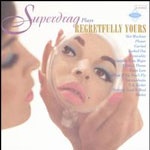
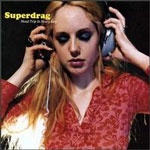
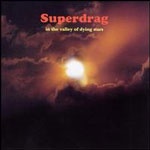
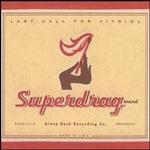
In the middle of 2007, some friendly jamming between Davis, Coffey, Pappas, and Fisher fostered a limited-run reunion tour. The strong response to this brought a limited release of 4 Track Rock!!! 1992-1995 + The Complete Bender Sessions, a two-disc compilation of early demos from the original lineup. It also brought a harder-rocking second solo effort from
While not entirely clear whether this Fall's tour was a one-off or indeed a resolved reunion, John Davis kindly took the time to chat about the band's past, present, and future. (Side note: it must be said that Arigato! is easily one of the 10 best albums I've heard in 2007.)
Darren Paltrowitz: When you were signed to Elektra Records, which form(s) of marketing did you feel would be most effective for Superdrag in establishing a fan base?
John Davis: Well, MTV was certainly the most effective, at least for a short time. The video for our first single ["Sucked Out"] stayed in the "Buzz Bin" for about 10 weeks. That's how we went from playing to 200 people every night to 2,000 people every night in a fairly short time. But the flipside is, the people you reach in that way tend to be the types of fans that don't really pay attention to anything that doesn't get that level of across-the-board mainstream exposure, so when it goes away, for the most part, so do they.
After you split from Elektra and moved to an indie label, which form(s) of marketing did you feel would be most effective for maintaining your prior fan-base and winning over new fans?
At that time, the only significant form of marketing that kept people interested in the records was the extent to which we toured. Thankfully, we were able to connect with a whole new subset of Superdrag fans that didn't know or care anything about us when we had a "hit" record out. The life of the record was basically determined by how many shows we were able to do. Plus it's really difficult to drum up press of any sort if you're not on tour or going out on tour. We kind of ran that thing into the ground after awhile. Then they say, "you can't put a record out again this year, because nobody will want to write about it so soon after the last one." It can start to feel like a no-win situation on that level. We always wanted to put a new record out every year. Maybe '08 will finally be "Year One" of that program.
Being your own label now, which form(s) of marketing do you feel to be most effective in general?
Obviously, the capability to engage directly with the people who are listening to your music via the Internet has blown up so much in so many different ways, even in the four years since Superdrag had kind of called it quits, that it dwarves every other outlet in terms of effectiveness, at least for a band like us. MySpace, our "official" website and independent publicity are basically the tools at our disposal to help make people aware of what we're doing.
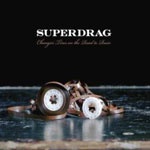

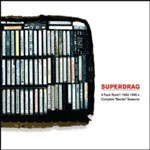
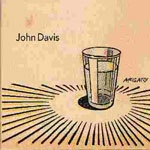
In today's day and age in a rock band, which do you think is more beneficial to a rock band: 10 plays on MTV, 10 spins on commercial radio, or 10,000 views on YouTube?
Ten thousand views on YouTube, no question.
Do you envision commercial radio being a long-term, forever-lasting way of people finding out about new music? What about satellite radio?
I don't know if it'll last forever; for the time being, I think it [commercial radio] probably serves a lot of people that still refuse to get on board with the new technology, or people that enjoy a certain type of music. I never listen to it, but then again, why would I? They aren't playing what I want to listen to. I never listened to it when they played my own music! Satellite radio seems like a better alternative in the long run, since it basically presents an endless spectrum of possibilities in terms of different formats, etc. etc. But I think it might have to reach a point where, you know, you'd buy a jambox at Target with the subscription to the service built-in or whatever. Your car stereo, your home stereo, that kind of thing. They may already be doing things like that. I know some new cars come with XM [Radio] for a limited trial period, for example. I'm not super well-informed about the different choices available, obviously.
In a recent interview I read with Lance Bass, formerly of N*SYNC, he mentioned merchandising to be why he is in a great place financially; not selling tens of millions of albums nor playing arenas and stadiums. Is this a sentiment that sounds true?
Sure. We've always used what we make on merch to bankroll our touring operations. We put a great deal of care into what we offer in "Merch World" and the way in which it's presented. Obviously, a group like N*SYNC is in the toy business and the lunchbox business as much as they are in the music business, by nature of what they do and who their audience is. Not many 30-year-old dudes are in the market for a Superdrag lunchbox.
Any advice for someone looking to develop a fan base here and now in 2007?
Having great songs and having something to say are two key factors.